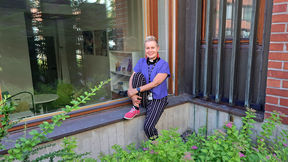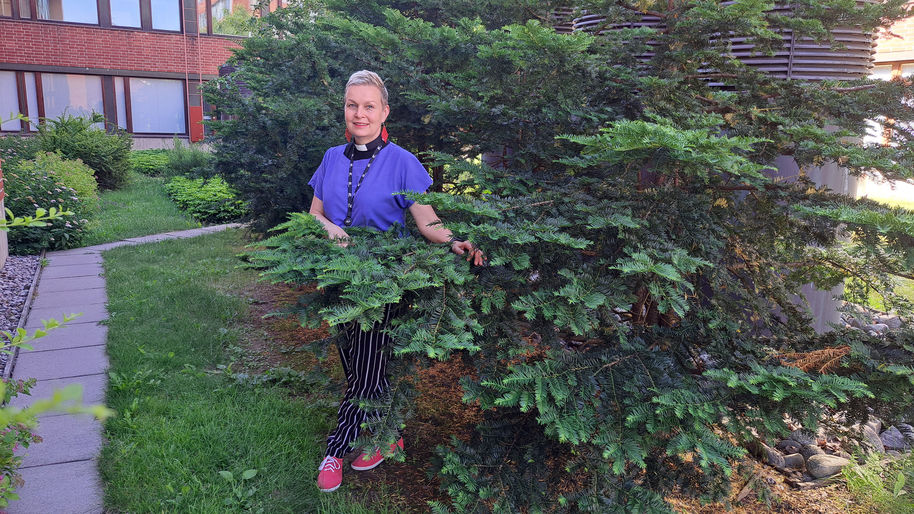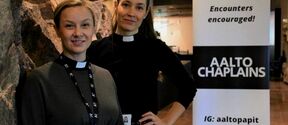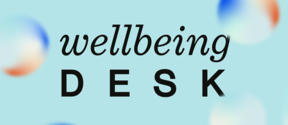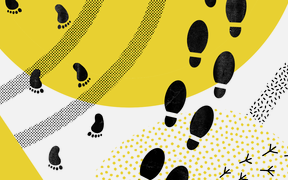Would you like to send a message of wellbeing to the Aalto community?
Less is more. It's a cliché, but it's true. The brain only receives a certain amount of information. There's no point in running around like a headless chicken. The holy trinity of life is to make sure that rest, work and leisure are in balance, all in equal amounts each day. It has been studied –– it produces the best results. For new students I would say, to limit all work to 40 hours a week. Period. That's the maximum, but you can do less.
What do you do in your free time and why is it important to you?
I hang out at home, pat the cats and wish someone in the family needed me. I also spend a lot of time with friends. I have all sorts of communities, including a sewing club to weave the pieces of life together, a sauna club, a reading circle, artsy women and supermums from the time when our kids were small.
For example, two friends and I have a 17-year long tradition that only breaks during the holidays. We meet on Friday mornings for coffee to talk goodness. This means that we talk about how good the upcoming week will be. We imagine we are a week away and tell each other how the week ahead has gone. Finally, we raise our coffee cups and say: "This will all happen, or something even better". It's an important ritual. It also feels safe: whatever happens, I'll see my friends at that time.
I go to church every Sunday. There I'm free to feel all my emotions. I can sometimes get annoyed if the sermon is unintelligent. The preacher may even dodge difficult or embarrassing Bible texts. I think you have to be brave enough to take on what you don't understand. Equally, in church, I can weep for joy and sorrow, be happy, desperate, elated, weary, comforted - whatever arises in the moment.







